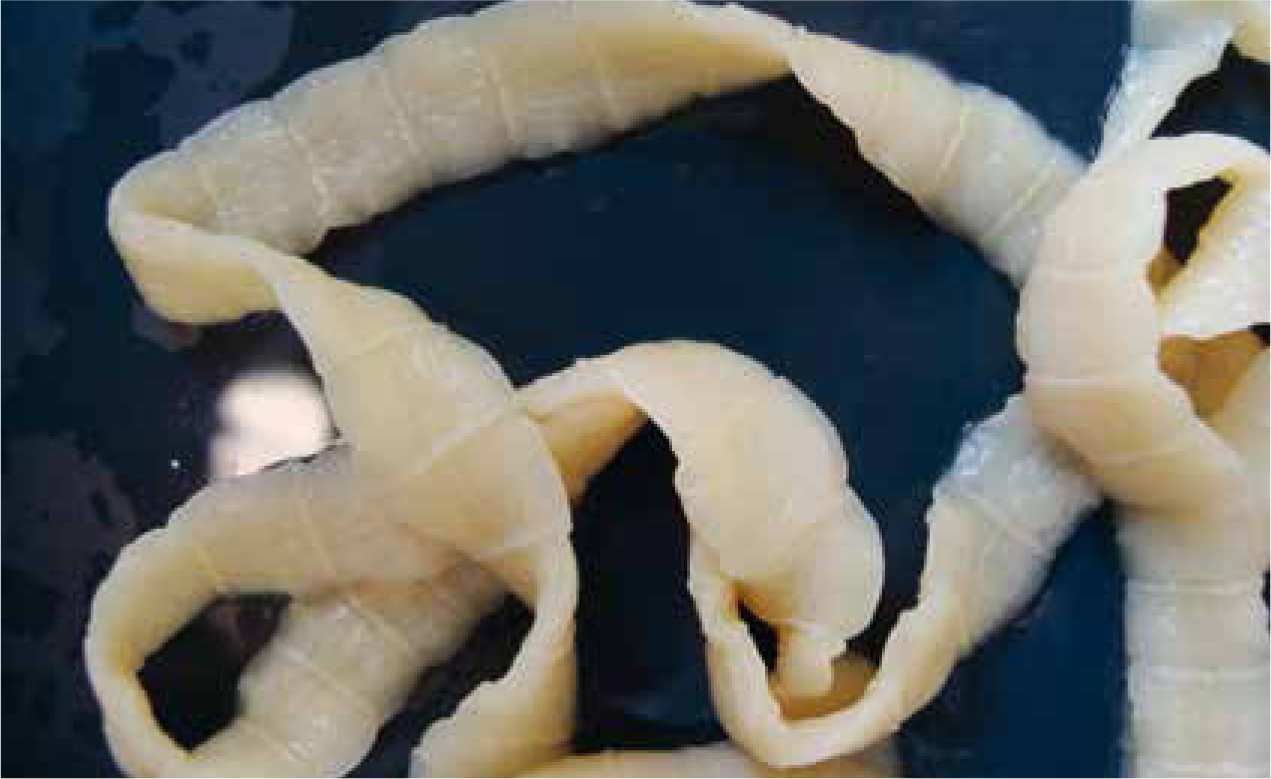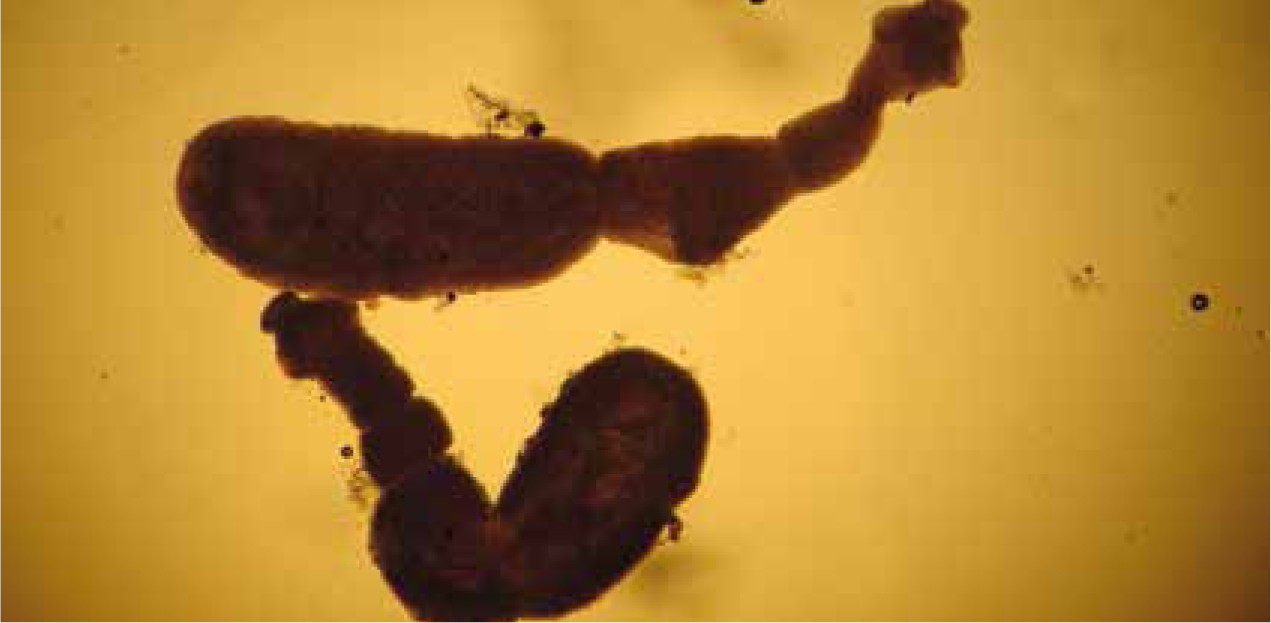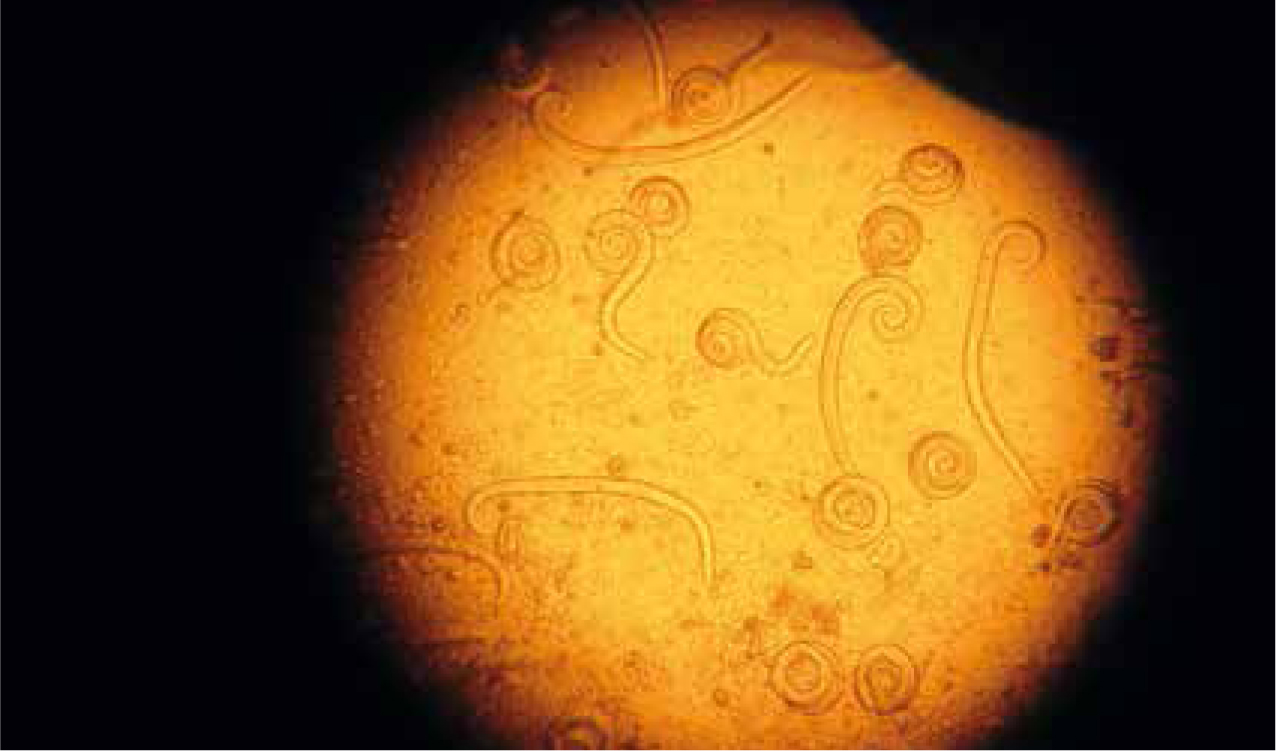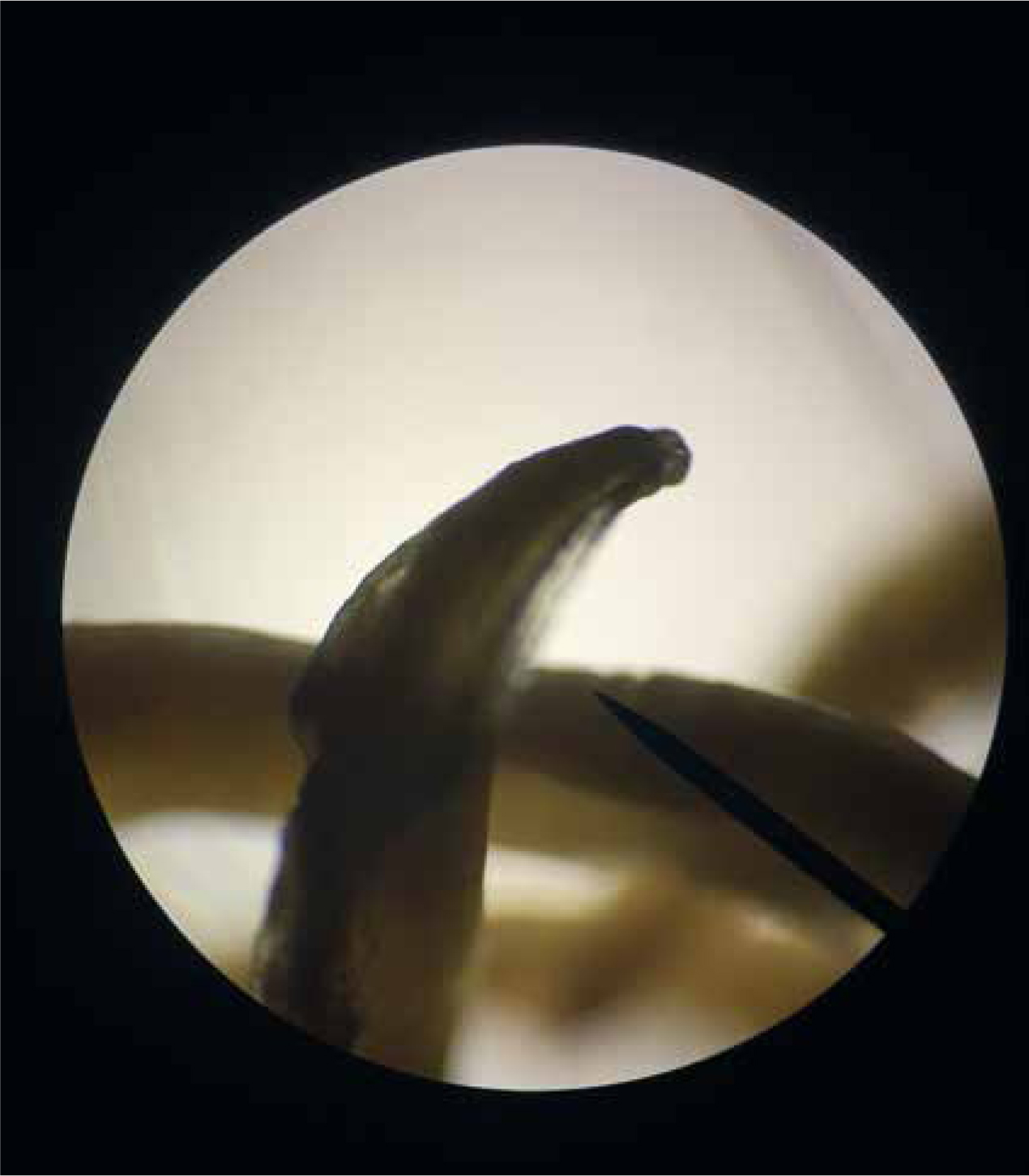Risk assessments are a vital component in creating a parasite control plan. No single parasite control plan will fit all pets, but a risk assessment will enable the pet to be allocated a risk group. Parasite control plans can then be easily tailored to meet the individual pet's needs.
In the UK, most parasite control plans begin with considering the ‘common’ parasites. Due to climate changes and the use of central heating in homes, the environmental stages of the cat flea, Ctenocephalides felis, can persist all year. This results in an increased flea challenge and the establishment of infestations if routine prophylaxis is not utilised (Coles and Dryden, 2014). In addition, all puppies and kittens are infected by Toxocara canis and Toxocara cati at or after birth via the transplacental (puppies) and transmammary (puppies and kittens) routes (Overgaauw and Van Knapen, 2013). If untreated 5–10% of adult domestic dogs and 10–26% of adult domestic cats shed Toxocara spp. eggs (Wright and Wolfe, 2007; Overgaauw and van Knapen, 2013; Wright et al, 2016). The eggs contaminate the environment where they develop to embryonated eggs which present a zoonotic risk to humans. For the preventative treatment of roundworm, the minimum recommendation is treatment with a licensed anthelmintic every 3 months to reduce egg shedding. This routine treatment combined with routine flea control to prevent household establishment is therefore the basis of parasite control plans for cats and dogs in the UK.
Risk assessments are then used to establish if preventative treatment against tapeworm, lungworm, ticks and monthly Toxocara spp. prophylaxis are also required. Areas for risk assessment include lifestyle, previous parasitic infection/infestation history, location, age and general health. The risk assessment should also consider owner circumstances and the factors that may affect compliance.
Factors of parasite risk assessments
Lifestyle
A pet's lifestyle is the most important factor when it comes to carrying out risk assessments and should be considered when establishing antiparasitic treatment frequencies. The risk of infection in the UK with the worms Toxocara spp., Taenia spp. and Echinococcus granulosus is significantly linked to the lifestyle of cat and dog hosts.
Hunting behaviour and an unprocessed raw diet will make Toxocara spp. infection more likely and dogs and cats exhibiting these behaviours should be treated for roundworm monthly. This will limit contamination of the environment with potentially zoonotic eggs. Hunting cats will also develop large Taenia spp. tapeworm burdens over time and shed segments (Figure 1). This can lead to human revulsion and erosion of the human–animal bond. If cats are not kept solely indoors then monthly tapeworm treatment is required in the hunting cat to minimise segment shedding and prevent loss of body condition caused by large burdens developing. Dogs on unprocessed raw diets, those fed raw or undercooked offal, and those with access to ruminant carcases should also be treated for tapeworm monthly to minimise Taenia spp. segment shedding and possible E. granulosus exposure (Figure 2).


Tick exposure is also closely linked to lifestyle; the risk of tick infestation is greatly increased if a dog is walked in areas shared with deer or livestock, or land bordering these areas. Areas of long grass, bracken, rural woodland or rough pasture are ideal tick habitats, and therefore also increase risk. Cats spending significant periods of time outdoors, particularly hunting cats that will visit wild animal dens, burrows and bird nests, are also at increased risk of infestation.
Other lifestyle factors will also play a part in determining the risk group of pets for parasites. For instance, if a dog intentionally (or accidently) ingests slugs or snails this places them at a much higher risk of contracting lungworm (Angiostrongylus vasorum). If there is more than one pet in a household, or different species of animals, then this can also increase risk, or at least affect control plans.
Even indoor pets are at risk of parasites, whether a reactivation of arrested larval stages from puppy and kitten hood (Toxocara spp.) or parasites unintentionally brought into the household by the owner, e.g. on their clothing, and therefore parasite control also needs to be considered in this group of pets.
Further considerations for parasite control are the economic and human health impacts an infected pet might have. Immunocompromised or very young/elderly people should not be exposed to any zoonotic risk. Furthermore, although infections with Taenia spp. and E. granulosus are rarely clinically significant in sheep and cattle, they can cause considerable economic loss from meat condemnation. E. granulosus is also a very serious zoonosis and efforts should be taken to prevent the spread of the parasite further within the UK.
Table 1 summarises some of the parasites of veterinary and/or zoonotic importance in the UK, and can serve as a useful guide when preparing parasite control plans or discussing parasite risk with owners.
| Parasite | Common name | Ecto/endoparasite | Common hosts |
|---|---|---|---|
| Toxocara canis/cati | Dog and cat intestinal roundworms | Endoparasite | Dog (T. canis), cat (T. cati), rodents, birds, man (paratenic hosts) |
| Taenia spp. | Cat and dog tapeworms | Endoparasite | Cats, dogs (adult tapeworms), ruminants, rabbits, rodents (intermediate hosts) |
| Dipylidium caninum | Flea tapeworm | Endoparasite | Cats, dogs, humans (adult tapeworm), fleas, lice (intermediate hosts) |
| Echinococcus granulosus | Hydatid | Endoparasite | Dogs (adult tapeworms), ruminants, humans, pigs (intermediate hosts) |
| Ctenocephalides felis | Cat flea | Ectoparasite | Cats, dogs, ferrets, rabbits, hedgehogs, other mammalian wildlife |
| Ixodes spp. | Castor bean ticks | Ectoparasite | Dogs, cats humans, ruminants, deer, small mammals, birds |
| Banesia canis | Redwater | Endoparasite | Dogs, Dermacentor reticulatus (tick vector) |
History
A pet's history plays an important part in determining a pet's risk group. This is because when a pet has been infected/infested with a certain parasite before, this indicates that their lifestyle places them at an increased risk of future infection/infestations.
Dogs that have a history of shedding tapeworm segments should always be treated for tapeworms monthly as it suggests their lifestyle places them at a higher risk of infection. This will prevent onward infection of livestock, eliminate proglottid shedding and thus improve the human–animal bond.
Additionally, some parasite infections/infestations are interlinked. For instance, the flea tapeworm, Dipylidium caninum, is strongly linked to infestations with fleas or chewing lice. Another example is tick-borne disease, where identification of ticks will help to inform veterinary professionals and owners which tick-borne pathogens a pet may have been exposed to.
Location
Parasite risk will vary considerably depending on geographical location. In the UK, lungworm and E. granulosus are good examples of this: tapeworm prevention in dogs is crucial in known E. granulosus tapeworm endemic areas (North Wales, Powys, the Wales/England border or the Western Isles of Scotland). The lungworm A. vasorum (Figure 3), although prevalent across the country, has a patchy distribution, being scarce in some areas and highly prevalent in others. A. vasorum can be highly pathogenic and monthly preventative treatment should be recommended to dogs in known endemic foci. In other areas, dogs with relevant clinical signs such as cough and coagulopathies should be tested for A. vasorum so a picture can be built up of local incidence, and it is useful for veterinary surgeons and veterinary nurses to know whether they are in a high risk area. Cases can be highlighted to other practices and local media, so a wider picture of geographical incidence can be established.

Exotic disease is another location-related risk. Leishmania spp. is not endemic in the UK, but prevention and control of leishmaniosis (usually via sandfly repellence and lifestyle management) is important for pets travelling abroad. Other important exotic parasites are Echinococcus multilocularis, Thelazia spp. and Linguatula serrata, as well as exotic ticks such as Rhipicephalus sanguineus and numerous tick-borne diseases. Exotic parasite infection should be considered in travelled and imported pets entering the country and relevant clinical signs compared with those caused by parasites in the country of origin.
Age and general health
Puppies and kittens are at higher risk than adults of contracting Toxocara spp. (Figure 4) and so should undergo strict deworming routines. Treatment of puppies should start at 2 weeks of age and be repeated at 2 weekly intervals until 2 weeks post weaning. This is to eliminate T. canis egg shedding from trans-placental and trans-mammary infection and prevent significant populations establishing in the intestine. Puppies should then be treated monthly until 6 months old. Kittens should be treated in the same way as puppies, but the first treatment can be given at 3 weeks old as there is no risk of trans-placental transmission. It should be remembered that autoinfection can occur in the bitch and queen during lactation, and so they should be treated at the same time as the puppies and kittens.

It should always be considered whether the pet has any health concerns likely to affect the seriousness of a parasite infection/infestation. Similarly, a pet's health may dictate what treatments can be used, as would any history of adverse reactions to past treatments.
Owner circumstances
When pets live with, or frequently come in contact with children or immunocompromised people, this increases the risk group of the pet. This is not because it actively puts the pet at higher risk, but because these groups of people are more likely to develop clinical infection.
Compliance
There are several big compliance issues, such as not treating pets in a timely manner, not administering the treatment effectively or treating with the wrong dose or a product not licensed for the species. An often-overlooked compliance issue is when pets frequently swim or have baths. Some spot-on treatments and parasiticide collars will not tolerate frequent bathing, and efficacy will likely be reduced.
An often-helpful aid to increasing owner compliance is to consider the owner's preferences when choosing treatments. For instance, does the owner have a preference over tablet, spot on or collar treatments? If the owner is comfortable with the choice of treatment, they are more likely to adhere to the treatment regimen.
There are often other factors that can contribute to non-compliance which may be out of the owner's control or which the owner may be reluctant to divulge. It is always important to consider whether cost will be an issue in ensuring that the owner keeps treatments in stock and up to date. Veterinary professions may have to weigh up the pros and cons of certain treatments and sometimes prioritise likelihood of compliance over risk group if it means a better overall outcome for the pet. Box 1 provides a list of questions that should be asked in a parasite risk assessment consultation.
The wider parasite control plan
There are five key stages to creating a parasite control plan:
The risk assessment forms the largest component; however, the other four stages are vital to effectively implement the plan. Engaging with the client and explaining to owners what the information means and how it is relevant to them is essential to promote trust and compliance.
Resources are an excellent aid for the veterinary nurse, to help explain about the variety of different parasites and the significance of risk to their pet. It is always helpful to provide the owner with information that they can take away if they wish, as the consultation can be overwhelming for the owner with the amount of information they receive (see the ESCCAP resources: https://www.esccapuk.org.uk/page/Pet+Owners/1/). It is considered another method of improving and supporting the client–nurse bond which can ultimately increase compliance.
Effective record keeping and reviews are essential for best practice. They are also an excellent means of ensuring standards are met within practice, and of providing a consistency of service to clients. Assessments and parasite control plans should be kept on file and referred to at each future consultation. The plan should be reviewed at least every 12 months as part of an annual health check, or sooner if circumstances are likely to have changed.
The role of the veterinary nurse
Veterinary nurses play a vital role in the formation and implementation of parasite control plans. Many clients feel more comfortable discussing parasite prevention with a veterinary nurse rather than a veterinary surgeon. This is because veterinary nurses are often perceived as more approachable and under fewer time constraints which allows them the opportunity to discuss parasite control over longer periods of time in a variety of settings (Tottey, 2015). These include dedicated parasite clinics, reception, phone consults and puppy/kitten clinics. By communicating effectively with clients, relevant information is obtained, and client understanding and compliance increased. Increased understanding and compliance also benefits the practice as the client bond is strengthened and regular sales and health outcomes achieved (Ackerman, 2012). Nurses also have time in dedicated clinics to demonstrate application of products and increase client confidence, with compliance increasing as a result.
Conclusion
The assessment of a pet's lifestyle and associated risk factors will go a long way towards helping create an effective parasite control plan for everyday and pet travel occasions. Bespoke parasite control plans can greatly optimise efficacy and compliance and consequently improve pet and owner health. The use of risk assessments also greatly helps veterinary professionals explain the importance of parasite control to clients. Veterinary surgeons and veterinary nurses can better demonstrate to owners why a specific parasite control plan is suitable for their pet, which increases understanding, aids compliance and helps combat the myth that veterinary practices are purely trying to make money from selling products.

